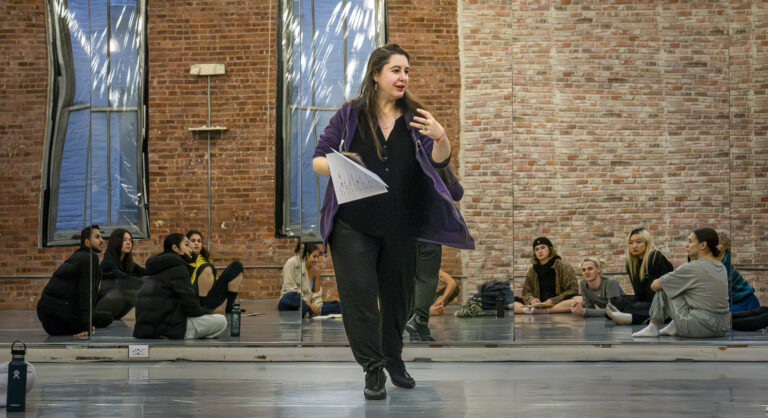
Training versatile dancers skilled in every genre has become the norm in today’s studio world. Comp kids are proficient in ballroom, jazz, hip hop, ballet, tap and more. Kids are entering the workforce more versatile and prepared than ever, and it’s wonderful. But, there are some downsides to this “jack-of-all-trades” mentality: one being that a dancer’s musculature and movement quality can becomes a hybrid of types, rather than fitting a traditional aesthetic. So, even though dancers can perform the technique of the different styles proficiently, the overall vibe can seem to be a bit off. Due to the strict nature of ballet, this problem seems to be especially true in classical work. *Cue the cringe-worthy phrase: “jazzerina.”
So how do we solve this problem when so many dancers love each genre and want to have the option to pursue all styles professionally? Other than investing in top-notch classical teachers, the answer is the answer to most questions in dance training—don’t let your students skip ballet class.
Seems obvious enough, right? It all starts with you!
Here are three pointers for keeping your kids in ballet each week. Good luck!
1. Never schedule company rehearsals during ballet classes.
As competitions approach or performance opportunities loom, it is often tempting to schedule extra rehearsals during technique classes. Resist this urge. Over time those missed ballet classes add up, and the classical muscles your dancers could be developing will atrophy. Schedule classes at inconvenient times before you even think of touching that daily ballet class. Trust us!
2. Keep firm rules and hold to consequences for missing (or coming late to) ballet.
At the beginning of the year, establish your expectations surrounding attendance and tardiness. Let your students know that it is particularly unacceptable to miss ballet, even if it’s for a rehearsal for a different genre. Make consequences clear, and follow through with them.
For example: “Dancers with more than two absences and three tardies that have not been made up will not be allowed to perform their solo at the next competition.”
3. Flood their lives with ballet.
Preparing for classical competitions, auditions and intensives will allow your dancers to grow exponentially. Giving them something to work toward will hone their focus and encourage them to develop skills that they wouldn’t have otherwise. Make these opportunities just as important as national and regional conventions, and your dancers will begin to develop just as much classically as they do in other genres. Don’t just sprinkle their lives with ballet class for maintenance. Flood their lives with ballet.




